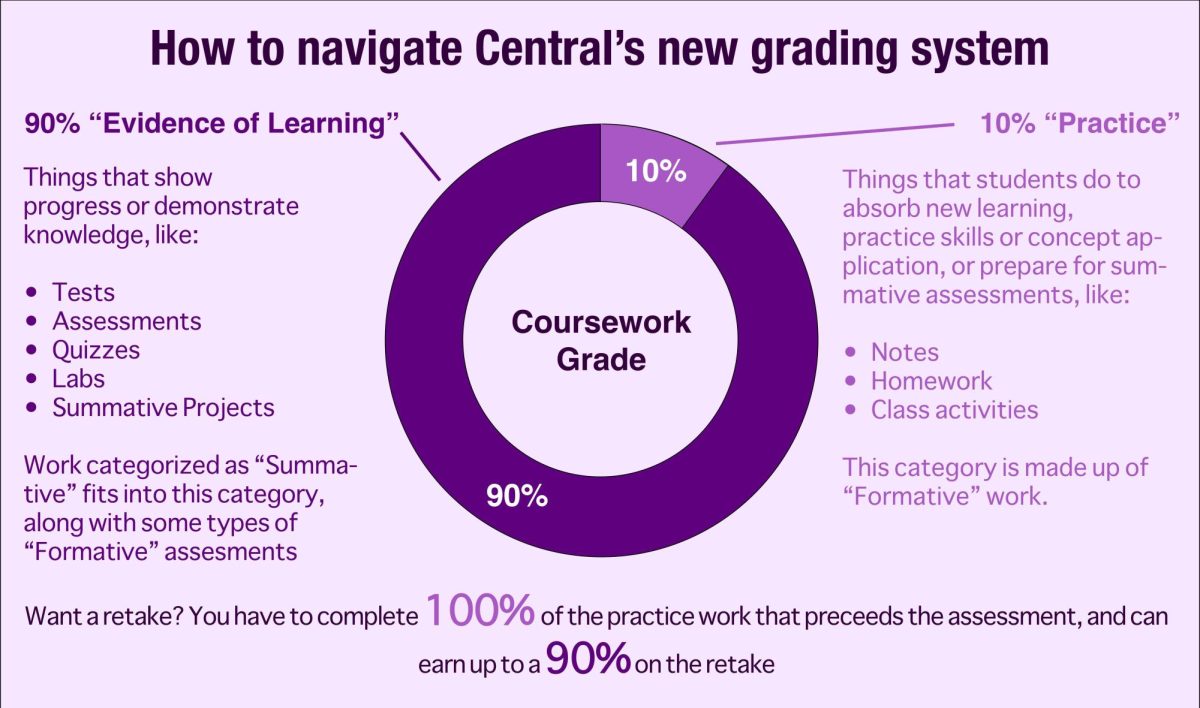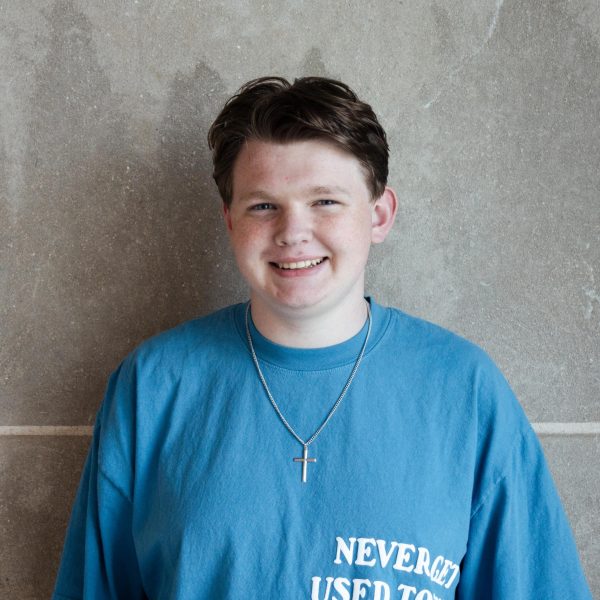Central’s coursework grades will no longer be divided into formative and summative categories. Instead, they’ve been replaced with “practice” and “evidence of learning” as part of a large shift in grading policies for the 2023-24 school year.
Reassessment and late work procedures have also changed. Students can now receive up to a 90 percent on a retake, with the deadline shortened to five school days after receiving feedback. Late work will no longer be accepted.
“We identified some key areas that we felt needed to switch [to] go along with academic [goals,]” said Steve Jeretina, Assistant Principal for Curriculum and Instruction. “We want students to be able to be more successful than in whatever path they decide to take after high school.”
The new “evidence of learning” category includes formative and summative assessments, projects and performances. Meanwhile, “practice” work includes daily readings, note taking and practice exercises.
“Practice is still more of that routine homework,” American Government teacher Donna Mohn said. “The difference now is that you can have a formative assessment that goes into evidence.”
The adjustment was made as a joint-effort between Naperville Central and Naperville North in order to standardize grading practices across departments.
“As we try to refine what grading looks like, it’s an effort for both buildings to come to that same definition and operate similarly,” Jeretina said. “One of the [main] things that we had implemented as part of these changes was consistent language.”
However, the reassessment policy section of the syllabus remains significantly different between Central and North. Instead of a 90 percent maximum on reassessments, North has a limit of 80 percent. They also only require 80 percent of practice work to be completed for retake eligibility; Central requires 100 percent completion.
In response to student and staff feedback, both new systems attempt to emphasize practice grades more heavily. Last year, many students didn’t consistently complete their formative assignments, according to Mohn.
“Before, students would do [the] homework when they wanted to get around to it; if the test was two weeks later, they’d turn it in two weeks later,” Mohn said. “But now, if you turn it in after the due date, it’s a zero, no retakes, no turning it in late.”
The acceptance of late work is ultimately left to teacher discretion under the new policy. In situations where students have excused absences, the goal is to be more lenient, Jeretina said.
But the prioritization of practice work has already increased completion for some teachers. Last year, around 60 percent of Mohn’s students turned in the first assignment on time. This year, she got “near 100 percent completion.”
The shortened deadline (which teachers can choose to extend) for practice work and reassessments comes with a benefit to both teachers and students, Jeretina said.
“I know students have a lot on their plate, so by [taking the reassessment] within a shorter timeframe, it doesn’t drag out and become something else that you’ve got to add on,” Jeretina said. “And teachers have a lot of things that they’re working on, so we wanted to honor their time and limit [reassessments] to a window that we thought was fair.”
However, some students are concerned that the shortened deadline of five school days restricts their ability to access those reassessment opportunities, especially on weeks without SOAR Support.
“I do a lot of outside activities, so I feel like [the reassessment window] is too short,” senior Yin Yin He said. “If I get sick, I don’t think it’s fair that I would still have to retake the test on the same deadline.”
Jeretina hopes to balance that shorter deadline with an increase in the maximum reassessment score.
“I think it’s kind of a counterbalance; if you do everything, there is an opportunity for reassessment,” Jeretina said. “This was an effort to [give students] every opportunity to be successful if it takes a second go around.”
Feedback about these changes is encouraged, Jeretina said, and can be sent to him at [email protected].
“Our plan is to solicit the feedback of students and teachers as we continue on with this and refine as needed throughout the year,” Jeretina said. “Hopefully we’re on the right track now, but with any change there’s going to come the need to make some modifications along the way.”





